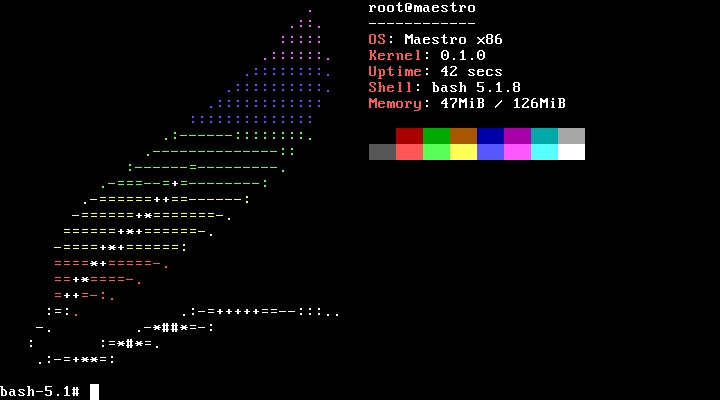Enter Maestro, a unix-like monolithic kernel that aims to be compatible with Linux in order to ensure wide compatibility. Interestingly, it is written in Rust. It includes Solfége, a boot system and daemon manager, maestro-utils, which is a collection of system utility commands, and blimp, a package manager. According to Luc, it’s creator, the following third-party software has been tested and is working on the OS: musl (C standard library), bash, Some GNU coreutils commands such as ls, cat, mkdir, rm, rmdir, uname, whoami, etc… neofetch (a patched version, since the original neofetch does not know about the OS). If you want to test it out, fire up a VM with at least 1 GB of ram.



I feel like this is an example of innovation vs invention. Rust did not invent borrow checking. It did, however, make the borrow checker an integral part of the language and compiler. Making memory safety the default behavior is innovative and makes it the path of least resistance.
Memory safety issues are responsible not just for crashes and perf degredation but are a significant attack vector for exploits. Making it harder to land there makes these exploitable conditions less common. The mechanism is not unique but its integral place in the language is.
deleted by creator